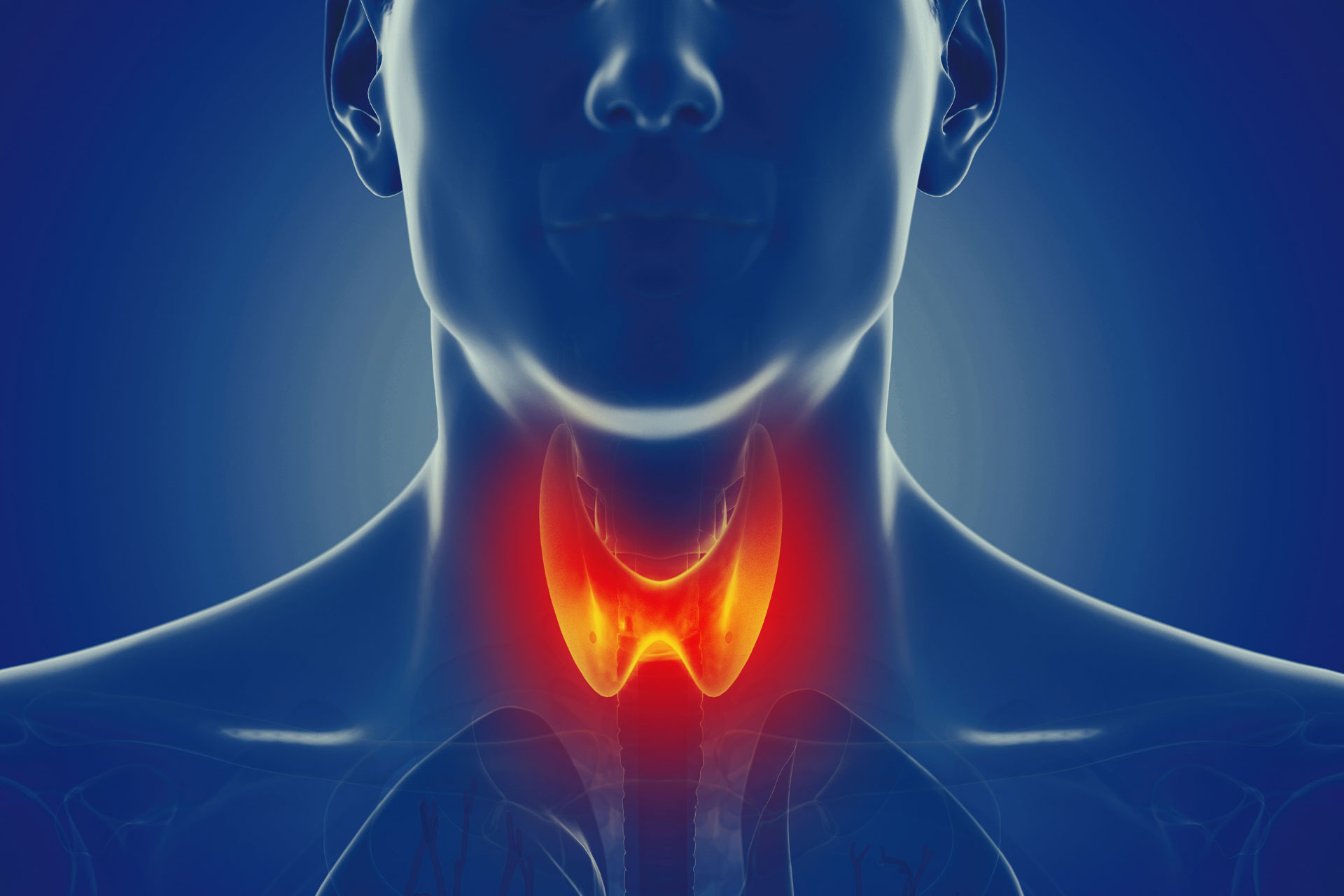What does the thyroid do?
As part of your body’s endocrine system, your thyroid is responsible for manufacturing hormones that regulate your metabolism. Although it is a small, butterfly-shaped gland at the base of your neck, do not be fooled by its size! Even though it is small, it can create a cascade effect on your health if it is not functioning as it should. These problems range from relatively harmless goiter to life-threatening cancer.
What Causes Thyroid Problems?
The thyroid produces two main hormones: thyroxine (T4) and triiodothyronine (T3), and these influence every single cell in your body. From how your body metabolizes fats and carbohydrates, to temperature regulation and heart rate, to the production of protein – thyroid hormones are center stage.

Hyperthyroidism
Hyperthyroidism, also referred to as overactive thyroid, results from the overproduction of the thyroid hormone thyroxine. This leads to rapid, unintentional weight loss and fast or irregular heartbeat. The most common therapies for hyperthyroidism are anti-thyroid medications and radioactive iodine, which slows down the production of thyroid hormones. In some cases, surgery is required to remove the thyroid altogether if more conservative treatments have been unsuccessful.
Generally, hyperthyroidism is classified into the following conditions:
- Graves’ disease – Overproduction of thyroid hormones
- Toxic adenomas – Nodules develop within the thyroid and begin to secrete additional thyroid hormones
- Subacute thyroiditis – Thyroid gland inflammation due to pregnancy, autoimmune conditions, or for unknown reasons that results in “leaking” of excess hormones; typically temporary, but can last weeks or months
- Pituitary gland malfunctions or cancerous thyroid growths – Rare, but may result in hyperthyroidism
Symptoms of hyperthyroidism may include:
- Unintentional weight loss
- Rapid heart rate over 100 beats/minute (tachycardia)
- Irregular heartbeat (arrhythmia)
- Heart palpitations
- Increased appetite
- Anxiety, irritability, and nervousness
- Tremors in the hands and fingers
- Sweating
- Menstrual pattern changes
- Increased heat sensitivity
- Bowel changes, such as increased frequency
- Enlarged thyroid (goiter) which may appear at the base of your neck as swelling
- Fatigue and muscle weakness
- Difficulty sleeping
- Thinning skin
- Fine hair that breaks easily
While proper management of hyperthyroidism can usually mitigate any additional complications, sometimes they do occur. These complications may include heart problems, brittle bones, eye problems, dermopathy (red, swollen skin), and thyrotoxic crisis (fever, rapid pulse, and delirium).


